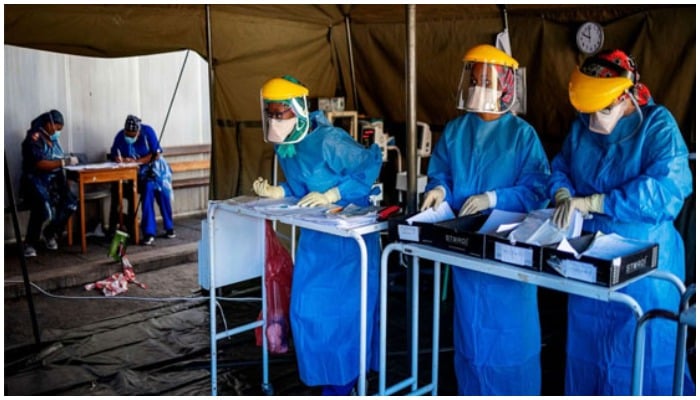Omicron variant: South Africa reports spike in child infections
Scientists, health officials say they have seen increasing hospital admissions in children under five
December 03, 2021

- Omicorn variant spread quickly among young people who seem to have spread it to older people, say doctors.
- Scientists and health officials say they had seen increasing hospital admissions in children under five.
- Scientists cite several possible reasons, one of which is that children under 12 are not yet eligible for vaccines in South Africa.
JOHANNESBURG: There had been a spike in hospitalisations among young children after the Omicron variant swept through South Africa, doctors said Friday. However, they stressed it was early to know if they were particularly susceptible.
In the week since South Africa alerted the world of the new COVID-19 variant, infections have spread faster than in the country's three previous waves.
The first cluster of cases centred around university students, and then spread quickly among young people who seem to have spread it to older people.
But scientists and health officials said they had seen increasing hospital admissions in children under five, along with higher positivity rates among children aged 10-14.
Wassila Jassat, from the National Institute for Communicable Diseases, said: "We've seen quite a sharp increase across all age groups, particularly in the under fives," referring to hospitalisations.
"The incidence in those under fives is now second-highest, and second only to the incidence in those over 60," she told a news conference.
Scientists cited several possible reasons. One is that children under 12 are not yet eligible for vaccines in South Africa. Doctors have reported anecdotally that both children and parents testing positive have not been vaccinated, she said.
NICD's head of public health Michelle Groome said the virus was spreading faster than at any point in the pandemic in Gauteng, the province where Johannesburg and the capital Pretoria are located.
"Preliminary data suggests Omicron is more transmissible and has some immune evasion," she said.
South African scientists on Thursday reported that the reinfections were three times as likely with Omicron, compared to the Delta or Beta strains.
Although generally patients are showing milder symptoms, Groome cautioned that the onset of serious illness would only be expected over the coming two weeks.
The country recorded 11,535 new cases Thursday, mostly in the epicentre Gauteng.
That is five times more than the reported cases just one week ago, when South African scientists alerted the world to the new variant.









